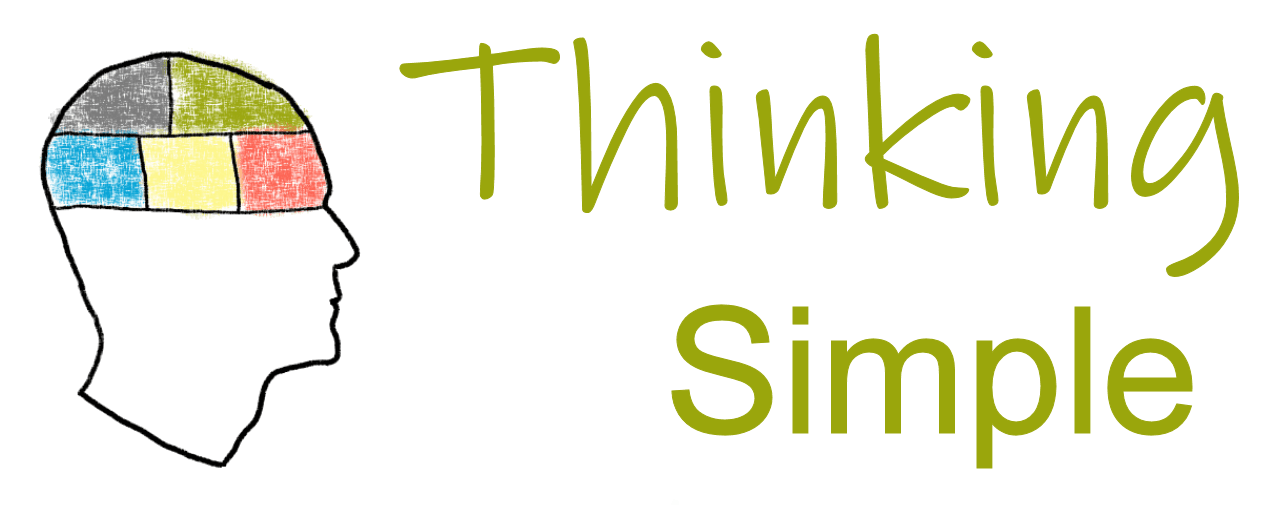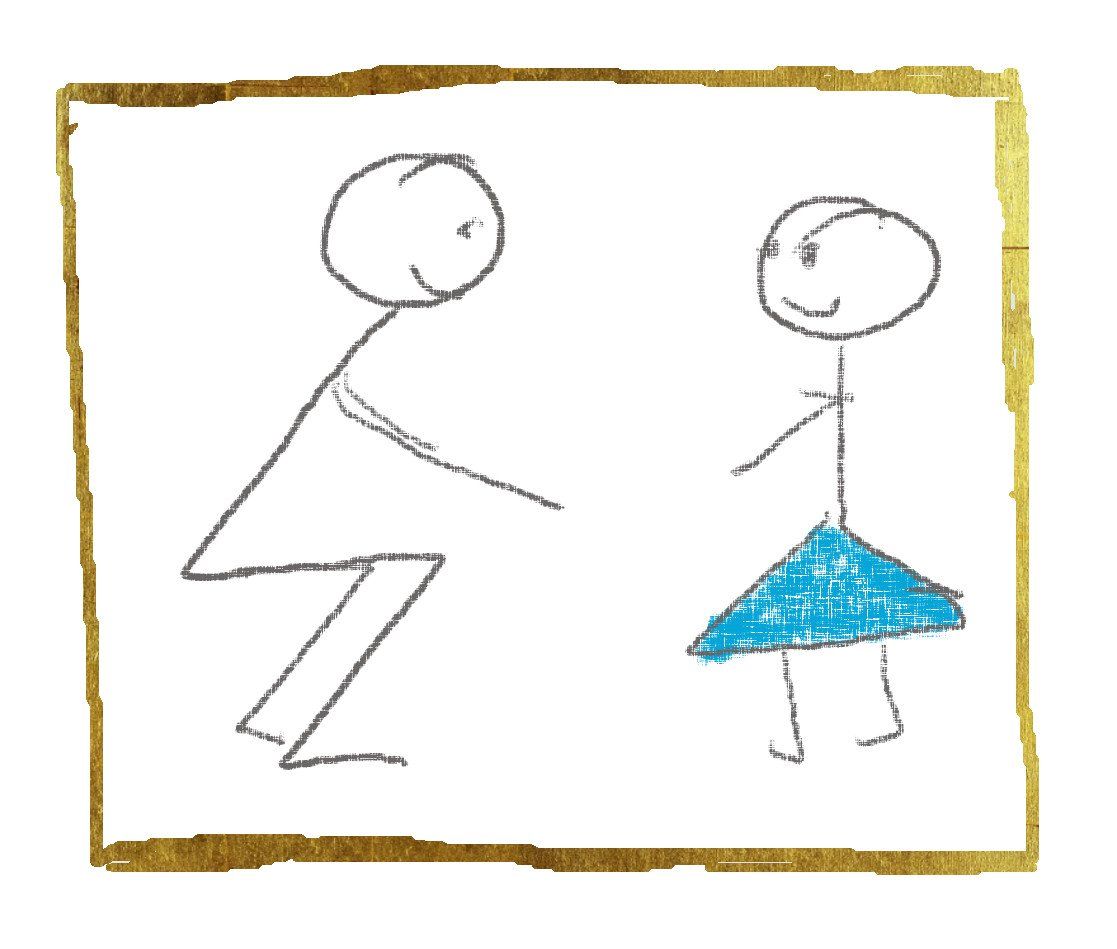
Heightened Awareness
Changing your approach to parenting takes time and dedication.
Creating a heightened awareness of your existing style and the possible alternatives is a good place to start.
Key Points:
- Once you start looking, you will probably find you make more controlling interventions than you ever realised
- Eliminating the interventions often requires us to go against our natural instincts
- Making such a deep rooted change starts by developing a heightened awareness
- We need to spot what's causing us to intervene, learn what shapes our children's behaviour and identify the difference between what we're trying to cause and what we're actually achieving
- By increasing the quantity and quality of attention we bring to our parenting the change will start to happen without us really noticing
Introduction
Controlling interventions can take many forms. They can be anything from a guiding hand to help steer a child down a busy street to sending them to their rooms in disgrace.
Although often well meaning, each of them creates an all too visible barrier with the potential for significant unintended negative consequences.
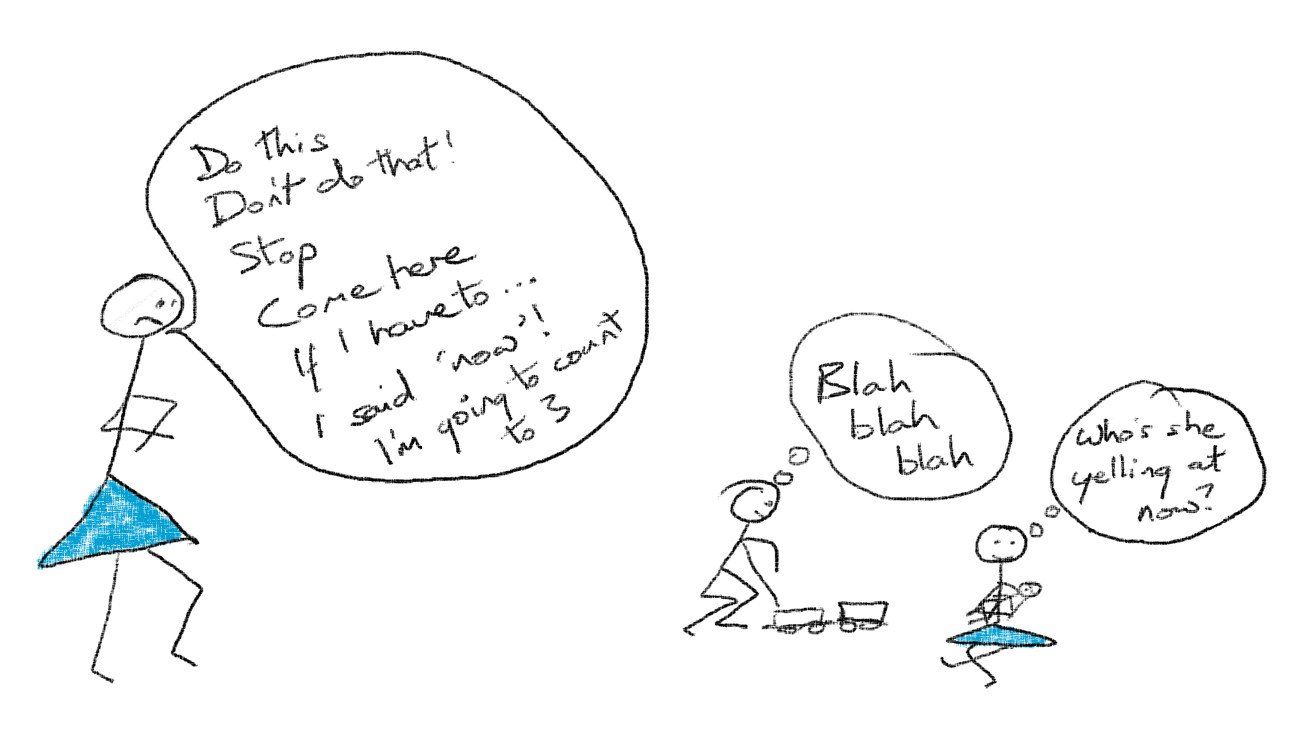
They all have the potential for significant unintended negative consequences
"Stop that."
"Come and eat your breakfast."
"You can have an ice cream when you've finished your dinner."
"If you don't finish your homework you won't get to watch TV."
"No, I said NO..... Oh, go on then."
"If I have to tell you one more time..."
"Be brave."
"Be good."
"Mind the ...."
Like weeds, once you start looking, they're everywhere!
Are we doing it because we feel responsible? Because without it things would be chaos? Because it's the way we were brought up? Because it's what's expected of us? Or, because it's all we know?
How many parents pause to imagine the damage each of these causes?
Take "Be good", for example. It's one of those habitual things parents say when leaving a child in someone else's care. Our parents said it to us, probably their parents said it to them. On the surface it is seemingly innocuous. But, what is it really saying to the child?
- I don't trust you
- I believe you are capable of being naughty
- I feel anxious because I won't be there to control you
Don't believe me? Watch for the tell tale signs of frustration, disappointment or dismissal on a child's face when it is said to them.
Giving a child a message that they can't be trusted, or that we believe them capable of being naughty, can be really damaging.
If they believe themselves to be good, they will feel resentful for being told. All it's really saying to them is "you don't know me" and "you don't trust me".
If they have been labelled naughty in the past, it just reinforces their own identity. Once you think of yourself as naughty there is little incremental cost to being naughty again.
I will cover the subtle ways we give our children permission to (mis)behave and the other damaging impacts of controlling interventions, in more detail elsewhere.
A Life Without Controlling Interventions
All overt controlling interventions come at a price. But, is it really possible to imagine a life without them?
"Don't forget you've got your piano lesson after school today."
"Daddy, why are you telling me that? I already know!"
"It was just a reminder."
"I don't need reminders, thank you."
My six year old daughter is so accustomed to living in a world without controlling interventions that she's developed an intolerance of anything that even sniffs like one. Luckily for her, and for us, we live in a world without threats, bribes, punishments, commands, protracted negotiations, warnings and now, it seems, even reminders!
Just about the closest we come is "Dinner's ready".
So, yes, such a world is possible.
It wasn't always that way. I didn't set out to eliminate controlling interventions.
There are three things that drove me to eliminate them:
understanding the true cost of stepping in to control
learning what fuels child behaviour
and, having a daughter who was allergic to being told, or shown, what to do from the moment she came out of the womb
If I'm being really honest, it was probably those reasons in reverse order!
Luckily for me, I'm blessed in having the luxury of being a full time parent to a single child. I have years of experience in development. I've had one of the best Buddhist coaches in the UK to help me develop what little emotional intelligence I possess today. I have a like minded and supportive partner and a bright, articulate child who never lets me off the hook.
I hate to think what my stress levels might be like if I had some of the real world pressures faced by working parents of multiple children.
But, enough of that, on with the story...
Going Against Our Instincts
The first thing you learn when you set out on the journey to eliminate controlling interventions is that your instincts are not always helpful.
In fact, the worst piece of advice I was ever given in prenatal classes was "trust your instincts". This may, just about, have worked when it came to the question of which way up to hold them, but it didn't get me much further.
I truly believe "question every instinct" would have been better advice and "turn every instinct on its head" would have been best of all.
A good example is eating. When it matters to you most, when you're desperate to help them get it right, when the urge to step in and control is at it's strongest, that is exactly when it is most important to step away and hand control to them.
Make eating a battle ground and you risk starting a damaging war that could run for years.
Thankfully I now have the daily pleasure of seeing my daughter choosing a healthy, balanced diet. Even better, is seeing the way she genuinely relishes and gets excited by all types of food, not just chocolate.
Understanding the rewards that come from giving complete freedom within a clear framework taught me much that I now apply to all aspects of parenting.
However, going against our instincts, upbringing and the expectations of many around us takes real strength and determination. It is not something where you can automatically reach for an off the shelf solution and expect it to work.
A First Step - Heightened Awareness
We all have our own preferences when it comes to making changes.
Some people will want to look at the big picture first, some to explore the details, some to learn from what has worked for others in similar situations. Some will want to dive straight in.
I hope to cover all these approaches in time.
Whichever approach you prefer, I would suggest that you use it as a way to create a heightened awareness of your own parenting style.
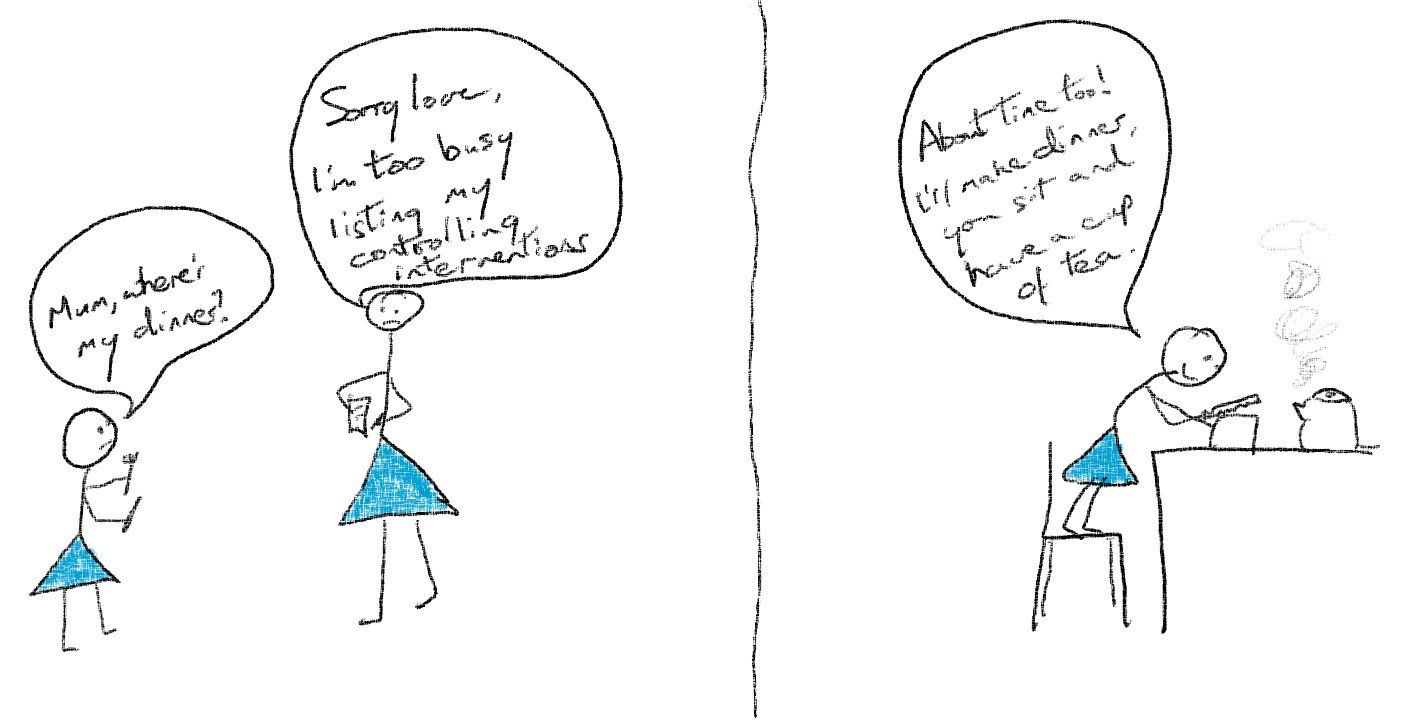
Make a list of your controlling interventions
To be successful at changing your approach, you need to:
- become more aware of the strengths and weaknesses of your current parenting style
- decide what is significant enough to you, and your children, to justify making a change
- understand the alternatives available to you
- accept your role in your children's behaviour and shape the alternatives to fit your personality and circumstances
You may even need to come up with new approaches that are designed to work for you.
All this takes time.
But it is not wasted time. Increasing the quantity and quality of attention you bring to your parenting, is a very real change in itself and one that will reap dividends for years to come.
What We Are Aiming For
Gaining a heightened awareness requires us to understand not just where we are now, but where we would like to be. For me, that means a world where:
- our authority is trusted and respected
- our children feel confident in our generosity, consistency and fairness
- they are able to develop their own sense of responsibility and control
- they are able to make mistakes without fear of reprimand or punishment
- they are free to explore and develop their own personality rather than have ours imposed on them
A world where:
- we learn to control ourselves more and understand them better
- they learn to control themselves more and understand themselves better
Respect needs to be freely given
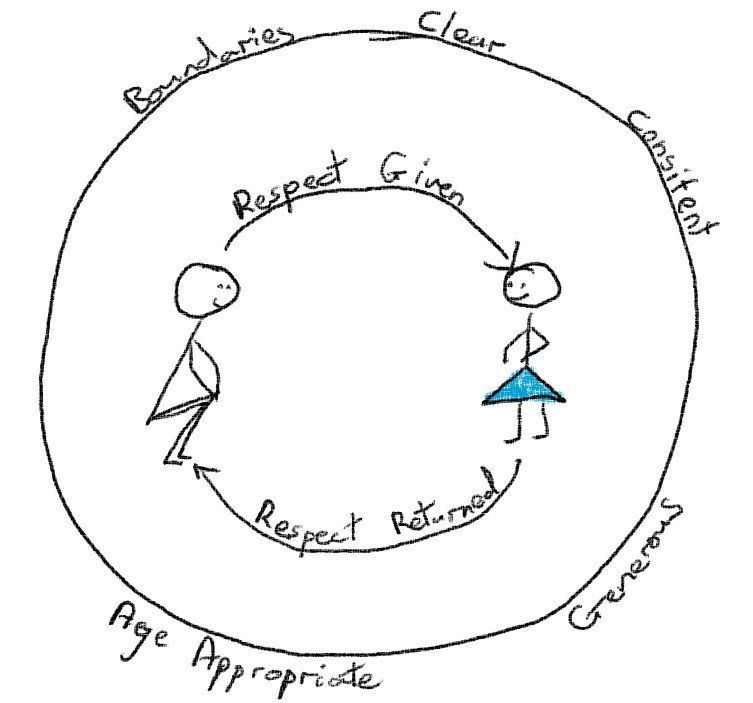
To create this new world, respect needs to be freely given.
But, it is important to recognise that it can not, and must not, be demanded in return.
Respect from our children needs to be earned.
Over time it is possible to gain confidence in our own authority and to trust that our children will return our respect for them, but it can never be taken for granted.
Children change and develop constantly. They re-test boundaries that we thought were secure. They expose chinks in our armour and they probe our emotional weaknesses.
Personally, there is rarely a day when I don't have to consciously control my emotions, keep my mouth shut, give positive attention and say "yes" when I'd love to say "no"!
Created 18/12/2018
Last Updated 24/01/2019

